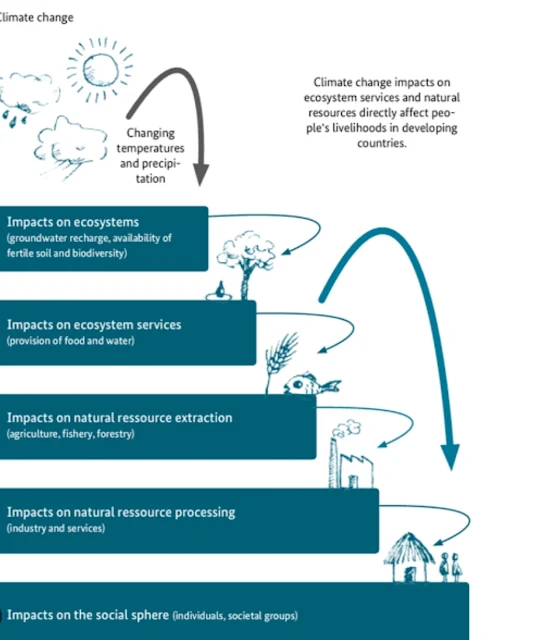Climate change and its impact on nature
🌍 Climate Change and Its Impact on Natur
Climate change is no longer a distant threat—it's happening here and now, and its effects on nature are becoming more visible every day. From melting glaciers to shifting animal migration patterns, nature is sounding the alarm. But to truly understand the problem, we need to ask three simple questions: What is climate change? How does it affect nature? And why is this a serious concern?
---
❓ WHAT is Climate Change?
Climate change refers to long-term shifts in temperatures and weather patterns on Earth. While climate naturally changes over time, the current rate of change is largely caused by human activities, especially since the Industrial Revolution. The biggest culprits are:
Burning fossil fuels like coal, oil, and gas
Deforestation
Agriculture and industrial processes
These activities release greenhouse gases (GHGs) such as carbon dioxide (CO₂), methane (CH₄), and nitrous oxide (N₂O) into the atmosphere. These gases trap heat, causing the Earth’s average temperature to rise—a phenomenon known as global warming, which is the driver of climate change.
🔍 HOW Does Climate Change Affect Nature?
Climate change has profound and widespread impacts on nature, disturbing the delicate balance of ecosystems. Here's how:
🌡️ 1. Rising Temperatures
Species shift their ranges to cooler areas.
Heat stress affects animals and plants, especially those adapted to narrow temperature ranges.
❄️ 2. Melting Ice and Rising Sea Levels
Polar bears and other Arctic wildlife are losing their habitats.
Coastal ecosystems like mangroves and wetlands are disappearing under rising seas.
🔥 3. More Frequent Natural Disasters
Increased wildfires threaten forests and biodiversity.
Droughts and floods become more intense, affecting rivers, lakes, and the species that depend on them.
🐾 4. Disrupted Life Cycles and Migration Patterns
Birds and butterflies migrate earlier or to new locations.
Plants bloom out of sync with pollinators, threatening reproduction.
❗ WHY is Climate Change a Serious Problem for Nature?
The reason climate change is so dangerous for nature is that it causes rapid, large-scale changes that many species can’t adapt to in time. Here’s why it matters:
💔 1. Loss of Biodiversity
As habitats vanish, species go extinct. The current rate of extinction is estimated to be 100 to 1,000 times faster than the natural background rate.
🔄 2. Disrupted Ecosystems
Food chains break down when even one species disappears.
Ecosystems become less resilient to disease, pests, and environmental stress.
🌱 3. We Rely on Nature
Humans depend on nature for clean air, fresh water, food, medicine, and climate regulation.
Damaged ecosystems threaten global food security and human health.
🌿 Example: Coral Reefs and Ocean Warming
What: Coral reefs are vibrant underwater ecosystems made of coral polyps that live in warm, shallow seas.
How: Rising ocean temperatures cause coral bleaching, where corals expel the algae that give them energy and color. Without these algae, the corals starve and often die.
Why: Coral reefs support 25% of marine life, protect coastlines from erosion, and support millions of people through fishing and tourism. When reefs die, entire ocean ecosystems collapse.
---
✅ Conclusion: Time to Act
Climate change is not just a threat to polar bears and faraway rainforests—it's a threat to every living thing on Earth, including us. Understanding what it is, how it impacts nature, and why it matters helps us see the urgency of the problem.
But there's hope. By reducing greenhouse gas emissions, protecting forests, and shifting to sustainable lifestyles, we can help restore balance to our planet.
---
🌱 Nature can recover, but it needs our help. The time to act is now.







Comments
Post a Comment